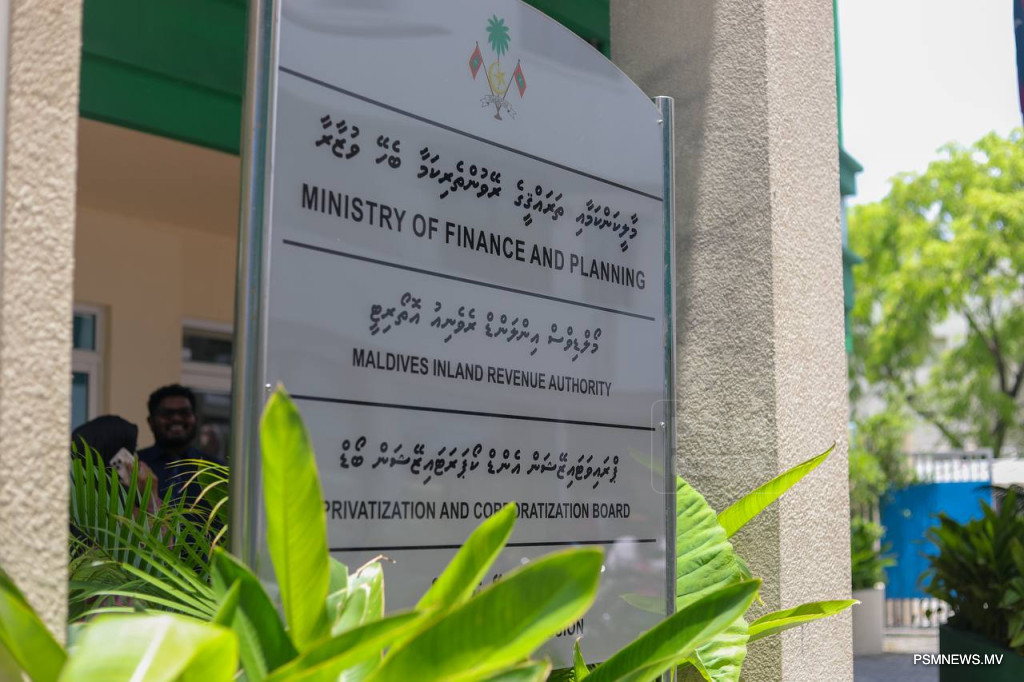
Maldives government has reported a significant upswing in its financial standing, with total revenue and grants climbing by an impressive 9.9 percent compared to the previous year.
According to the Ministry of Finance and Planning's Weekly Fiscal Development Report, this robust growth has pushed state revenue to USD 2.2 billion, a notable increase from USD 1.96 billion recorded a year prior.
Fueling this positive trend is a healthy rise in tax revenue, which saw a 7.7 percent increase, reaching USD 1.61 billion. Within this category, Goods and Services Tax (GST) revenue demonstrated particularly strong performance, growing by 11.5 percent to USD 875.5 million. A substantial contributor to this surge was Tourism GST (T-GST), which jumped by 13.7 percent to USD 583.7 million since 1 July this year. Other notable tax increases include a remarkable 108.0 percent rise in green tax to USD 123.2 million and a 60.2 percent increase in airport service charges/departure tax, now standing at USD 97.3 million.
Non-tax revenue also played a crucial role, expanding by 22.1 percent to USD 531.8 million. Fees for various services experienced a significant boost of 60.3 percent, amounting to USD 239.9 million, with airport development fees being the primary driver, accounting for USD 103.8 million of this increase – a rise of 60.4 percent.
In parallel with this revenue growth, the government has also exercised considerable fiscal discipline. Total state expenditure has seen a decrease of 13.5 percent, falling to USD 2.2 billion from USD 2.6 billion in the previous year while government operating expenditure declined by 10.7 percent to USD 129.7 million. While government aid spending on grants and subsidies saw a marginal decrease of 4.0 percent, despite subsidies exceeding the budget, it remained 11.1 percent lower than the previous year, largely attributed to the decline in global oil prices.
Capital expenditure, however, has seen a significant reduction of 53.9 percent, totaling USD 317.8 million compared to USD 680.9 million in the previousyear. This strategic decrease is attributed to controlled project expenditure and the implementation of projects under contractor financing. Public Sector Investment Programme (PSIP) expenditure also saw a decline of 25.6 percent, reaching USD 447.5 million from USD 603.1 million. Within the PSIP, transport infrastructure received the largest allocation at USD 278.9 million, with notable investments in airport development (USD 207.5 million), bridge construction (USD 54.9 million), and harbour construction (USD 20.1 million).
Despite a deficit in the last week of October - the first time this year, the overall budget deficit for the period stands at USD 52.4 million, a substantial reduction of 91.1 percent compared to the USD 590 million deficit recorded in the same period last year. The Ministry highlighted that this positive fiscal outcome is a result of economic growth, successful revenue enhancement measures, and stringent expenditure control. While the overall balance remains in deficit, the primary balance remains in surplus by USD 207.5 million.
The government has rolled-out its pay harmonisation policy from November, aiming to establish a fair and equitable pay structure within the public service, coupled with continued cost control and a strategic design for capital projects.
The Ministry emphasised that as revenues continue to improve, capital expenditures will be increasingly focused on resources deemed critical for sustained economic growth.
